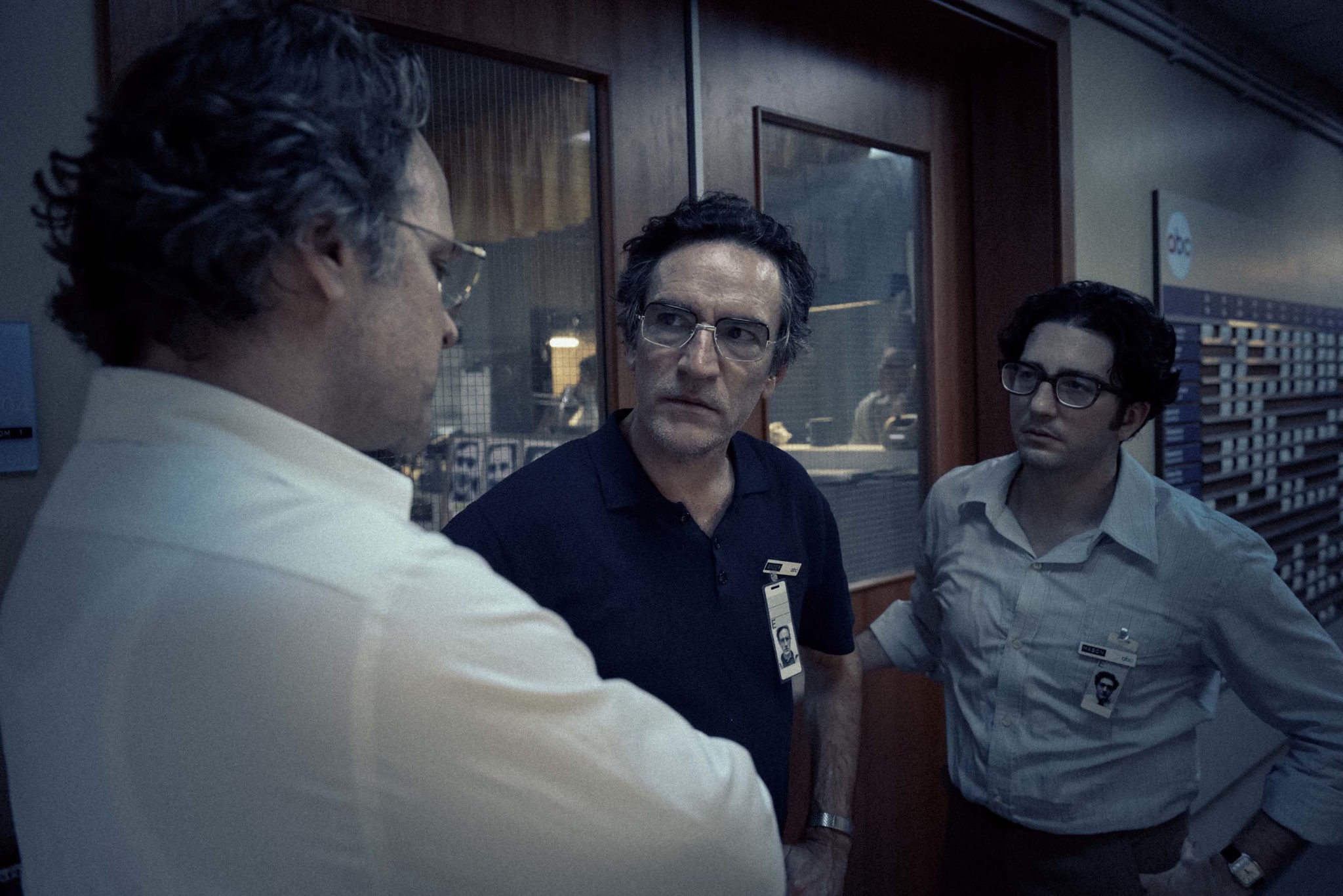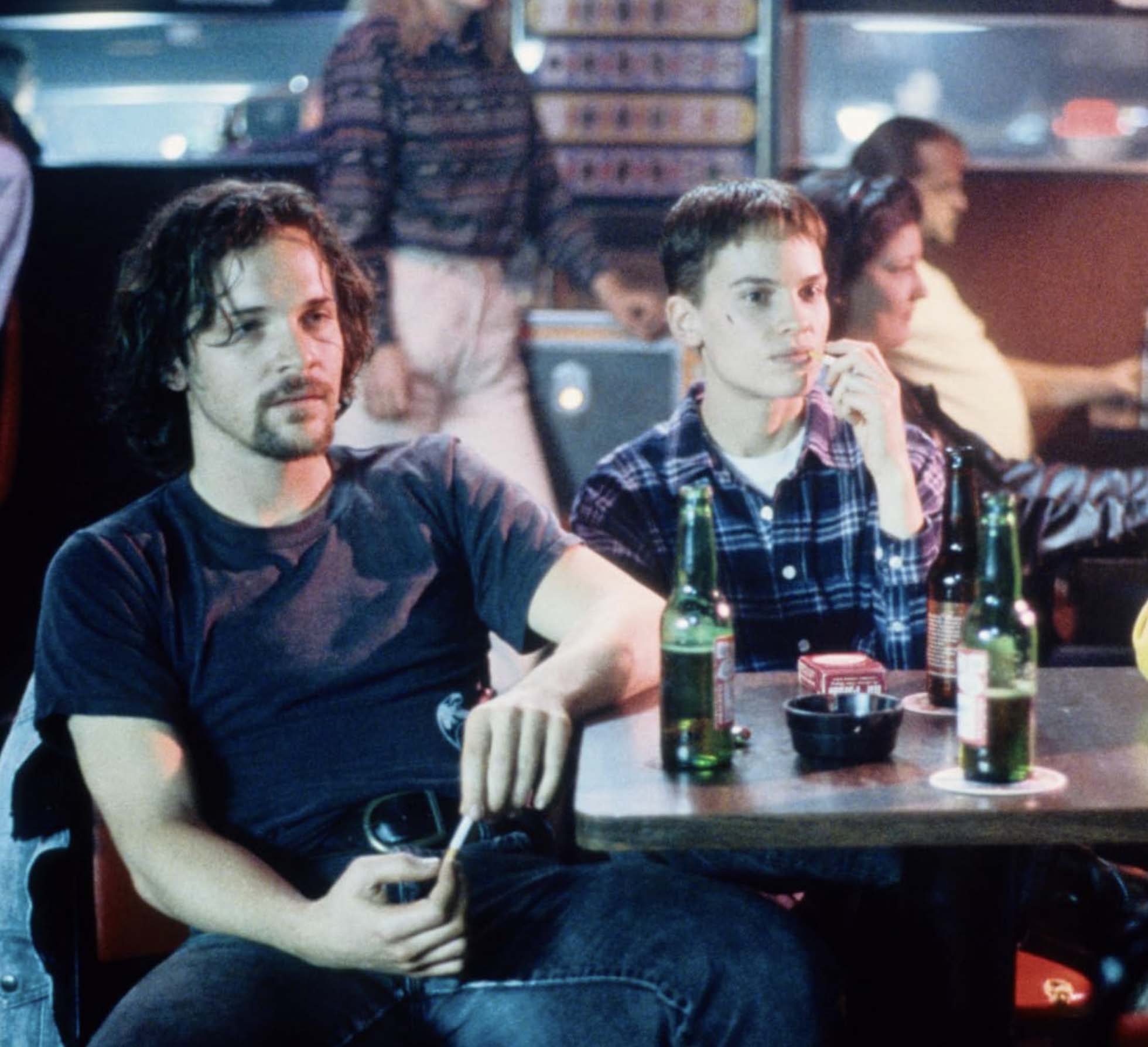- Film And TV
- 10 Feb 25

Peter Saarsgard discusses his new film September 5, which examines the journalistic coverage of the harrowing events at the 1972 olympics.
With the heartbeat of a thriller and the gravitas of a historical reckoning, September 5 explores the harrowing events of the 1972 Munich Olympics massacre and the seismic shift it triggered in journalism.
Directed by Tim Fehlbaum, the film focuses on the ethical dilemmas faced by ABC’s reporting team, who were thrust from covering athletic triumphs to broadcasting a live hostage crisis involving Israeli athletes and the militant Palestinian group Black September.
As the tragedy unfolded, ABC’s groundbreaking live coverage brought the horror into homes worldwide, setting a precedent for modern live reporting. But September 5 dissects the fine line between informing the public and turning terror into spectacle and showing the team’s sometimes devastating errors. Through tense newsroom drama and moral debates, the film reflects on journalism’s power, responsibility, and its role in shaping how we witness and remember history.
Peter Sarsgaard plays renowned TV producer Roone Arledge, who fought for his sports division to cover the breaking story, refusing to let ABC take over remotely from the US studio. Sarsgaard says while he had been aware of the events of the Munich Olympics, he didn’t know about this specific angle of the story.
“I knew all about it, but I didn’t know it from this perspective. I actually didn’t know that it was handled by sports journalists,” says the 53-year-old actor, who is far warmer and more personable than his often chilly screen persona would suggest. “The film, to me, felt like it was obsessed with the truth, and I thought that was the most important thing in terms of a movie that’s about trying to get the story right.
Advertisement
“The director, Tim Feldman, told me he had all of the real equipment from the era and that he was going to use documentary footage. And I thought, right, this is the only way to tell this story, and he’s so obsessive, I knew he would never betray those principles.”
The film uses real footage from the event including broadcasts by TV anchor Jim McKay, and is an analog lover’s dream, as Fehlbaum shows the team using rotary phones, physical letterboards for onscreen ‘Breaking News’ banners, and huge, hulking TV cameras that weighed hundreds of pounds. The physical weight and limitations of plugged-in cameras contrast with the camera-phone era of today, where seemingly infinite footage can be broadcast immediately. But as the sports team make mistakes in their coverage, questions arise about whether showing breaking news immediately is responsible or even necessary.
 L-r, Roone Arledge (Peter Sarsgaard)
L-r, Roone Arledge (Peter Sarsgaard)Marvin Bader (Ben Chaplin)
Geoff Mason (John Magaro) in Paramount Pictures’ “SEPTEMBER 5," the film that unveils the decisive moment that forever changed media coverage and continues to impact live news today, set during the 1972 Munich Summer Olympics.
“Here, they had one or two cameras, so it’s one perspective, and now we have a multiplicity of perspectives,” says Saarsgard. “And of course, where the camera is tells a different story, always. The camera inside the hostage room tells a different story, right? So this idea of a live camera rolling 24 hours on a situation where you can’t really see much, is sort of the precursor of this 24-hour rolling news coverage that we now have for virtually everything. I think of the boys stuck in the cave, or Baby Jessica, or hostage crises or school shootings, all this kind of stuff.
“I think you don’t have much perspective with live coverage. Even this notion of getting it wrong is something that happens pretty frequently. But you don’t usually get it wrong the next day. So why? What is it we’re feeding in people that we need to know the instant something happens halfway across the world? Can we just take a beat and read about it the next morning and make more informed decisions? Because what it does is, these errors become fuel for misinformation and internet bullshit.”
Internet bullshit is something the cast and crew of September 5 have already had to deal with. Untrue reports have claimed that the film was made after the recent events in Gaza, but Sarsgaard shot the film long before his recent role on Presumed Innocent.
Advertisement
“Anyone who knows anything about timelines and movies, knows nothing happens that fast,” he remarks. “So this is also my attempt to clarify that. That idea of the focus on trying to ensure that journalism is trustworthy, that it is ethical, that it is not sensationalist, and not putting the immediacy over the truth, is so important.”
Sarsgaard feeling defensive is understandable. While the film addresses an act of violence by Palestinians against Israelis, the film is not pro-Israel or anti-Palestine. Its focus is on ethics in storytelling. A thread about Germany’s response to the crisis is fascinating and nuanced, for thinking about how cultural trauma and guilt can prevent us from seeing situations clearly, which feels like a prescient and important point. Though the film was shot well before the recent atrocities in Gaza began, the cast and crew have spoken about what it means to have the story released now.
“We all talked about it and said ‘What does that do to the movie?’” says Saarsgard. “And my position was really always that it amplifies what the movie is actually about. The movie doesn’t obviously get into anything about the politics of the conflict. It’s a place to be able to discuss other issues, like, who gets to tell the story? How is the story told? Where the camera goes and who’s holding the camera will tell a different truth.
“So that’s pretty interesting in terms of talking about what’s going on in Gaza right now – who is telling that story? It depends on where you live, what story you were hearing, so this multiplicity of stories is a real issue.”
Sarsgaard has had a long and fascinating career, and often starred in films that tackle controversial and stigmatised topics, such as 1999’s Boys Don’t Cry, which was based on the real murder of a trans man; Kinsey, which explored the life of sex researcher Alfred Kinsey; and The Dying Gaul, where he plays a man whose partner has died of an AIDS-related illness. Sarsgaard says he has always thought consciously about cinema as a tool for social progression.
 Boys Don't Cry
Boys Don't CryAdvertisement
“Yes, it’s always in my mind, though sometimes it’s difficult to find something that aligns with – I don’t even consider it political, those human rights, to me, are not a political issue,” he reflects. “It’s hard to find films because I want them to be entertaining, artistic and have a meaning and an importance in terms of saying something that needs to be said in the world. But you know, sometimes I just go off and do one for the money! (laughs).
“Or because there’s another basket it could fill – like it’s a movie for a younger version of me. I tried to do that with the Green Lantern, thinking, ‘Oh, maybe the 13-year-old Peter would like this!’ But no-one comes to me for a lot of movies that are just diversion!”
While projects like Dopesick or The Looming Tower have overtly addressed issues like the opiate crisis or US intelligence responses to terrorism, he prefers stories with more implicit messaging.
“The great thing about Boys Don’t Cry is it’s about having the courage to be yourself, no matter what. You don’t have to be trans or gay to feel that message.
Sarsgaard is currently working with his wife Maggie Gyllenhaal on The Bride!, her interpretation of The Bride Of Frankenstein which also stars Jessie Buckley, Christian Bale and Penelope Cruz.
“I love working with her,” Sarsgaard gushes about his wife. “It’s just so epic in scope, but really it’s about Jessie Buckley and her character, the bride. And I know I’m speaking to Ireland right now, but in my opinion, she really is the best actor, regardless of gender, coming up right now, so I’m excited for everyone to see it.”
• September 5 is in cinemas now.










